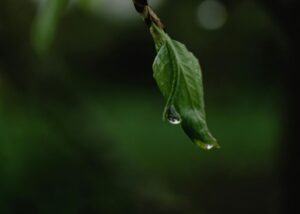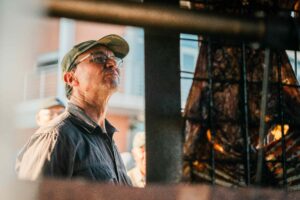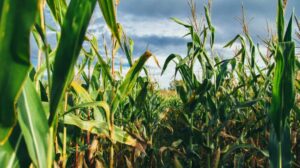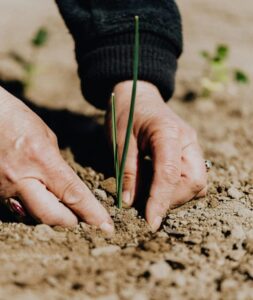Introduction
Information on hunting (regulations, procedures etc) can be found at www.phasa.co.za and www.sahunters.co.za.
In the latter half of the twentieth century a new model for management of game on private land developed in South Africa. Fundamental to this model were the issues of private ownership of game animals and adequate fencing required to keep animals in the enclosure. From its humble beginnings the commercial game industry on private land in South Africa developed steadily. Many farmers converted agricultural land to game ranches, motivated by the opportunities of financial gain offered by a growing game industry. Some areas in South Africa became a patchwork of high fences and game numbers increased exponentially. In areas where certain game species no longer existed, land owners translocated animals from other areas to stock their farms. This increased not only game numbers, but also species diversity on private land.
The engine behind this whole process was the market created by hunters wishing to hunt game animals. Research has shown that as much as 60% of the total income of the commercial game industry is derived from hunting. In addition to about 200 000 local hunters, large numbers of foreign hunters visit South Africa annually. The money that hunters are willing to pay for trophies, leisure and meat drive a huge industry with a total value estimated to be in access of R7 billion. Hunting was perhaps the most important conservation development in the 20th Century and continues to be the leading contributor to conservation in this century. It is seen as a form of sustainable use that has been proven to create conservation stakeholders, to stimulate conservation incentives and generate operating revenue for conservation budgets.
Source: Adapted from a paper sent to this project by Prof Pieter van Niekerk (Nelson Mandela University and CHASA)
National strategy and government contact
Find legislation affecting hunting on websites listed on this page like www.phasa.co.za and www.sahunters.co.za.
Both the national Departments of Agriculture and Forestry, Fisheries and the Environment (DFFE) are significant role players in the wildlife and hunting sectors. While the Department of Agriculture leads agricultural production (including wildlife husbandry), DFFE leads environmental conservation. The latter plays a most important role with regard to resource utilisation, as demonstrated by the appointment of a panel of experts to advise on appropriate norms and standards for hunting (both professional and recreational). Other relevant departments are the Department of Tourism and the Department of Trade, Industry and Competition (the dtic).
Role players
View the Premium Listings below (scroll down or click on “Premium Listings” on the Table of Contents to the right).
Further reference:
Companies involved
- Lists of companies involved can be found under “Hunting services” on www.phasa.co.za. Find butcheries (game processing), taxidermists and hunting locations at http://destinations.sahunters.co.za.
- For lists of tanning companies see the “Hides, skins and leather” page.
Training and research
- Refer to this heading in “Wildlife ranching” and “Biodiversity and ecosystems services”.
- Eastern Cape Game Management Association‘s Academy of Training offers hunting courses.
Associations
- Confederation of Hunting Associations of South Africa (CHASA) is an umbrella body for all Hunting Associations in South Africa. CHASA functions as a central discussion forum and channel to act on behalf of the hunting industry at a national level. Find contact details for the following affiliates on the CHASA website:
- Amatola Hunters & Conservation Association
- Big Bore Association – Southern Africa
- The Border Hunting Club
- Bosveld Jagters- & Wildbewaringsvereniging
- Bushveld Conservation Bureau
- Clay Target Shooting Association of Southern Africa (CTSASA)
- East Cape Game Management Association
- Gauteng Hunters Federation
- Handwapen Jagtersvereniging van Suider Afrika
- Harrier Hunting Club
- Hoëveld Jagters & Wildbewaringsvereniging
- Kaapse Jagters & Wildbewaringsvereniging
- Kalahari Jagters & Wildbewaringsvereniging
- KwaZulu-Natal Hunting & Conservation Association
- Macnab Jagklub
- Noordkaap Jagtersvereniging
- Noordwes Jagters & Wildbewaringsvereniging
- Rand Hunters Association
- South African Falconry Association
- SA Jaggeweerskietvereniging
- Suid-Kaap Jagters & Wildbewaringsvereniging
- Swartwitpens Jagtersvereniging
- Vrystaat Jagters en Wildbewaringsvereniging
Professional Hunters’ Association (PHASA) represents the professional hunters of South Africa who, according to law, have to be present at hunts conducted by foreign hunters. The association is the largest professional hunters association in the world.
SA Hunters’ and Game Conservation Association (SAHGCA) Included in its objectives is the promotion of sustainable utilisation, believing that hunting is the meaningful exploitation of a renewable resource; and to assist authorities in stamping out unethical and illegal hunting. Its website contains important information e.g. hunting licences, hunting opportunities, hunting proclamations, listed/protected species and more.
Wildlife Ranching SA is the official mouthpiece of game farmers. Read more on the “Wildlife ranching” page.
The Wildlife Translocation Association (WTA) is a voluntary association of professional game capturers and associated role players with members from the private sector and government service. The WTA website tells us that the game capture industry in SA “has an annual turnover well in excess of R100 million and provides significant employment. The WTA members annual capture 130 000 game animals”.
Also of relevance to this page:
National Society for the Prevention of Cruelty to Animals (NSPCA) While questions about the actual practice of hunting in general may be raised, the handling of animals leading up to the hunt is also a major welfare concern e.g. welfare issues that arise around the holding of game animals in areas in which they do not naturally occur (low or poor resistance to infection, internal and external parasites and nutritional problems). Other issues involve conditions around the breeding, transportation and sale of wildlife.
Websites and publications
Visit the websites listed earlier on this page.
- Game & Hunt, a monthly publication. Visit http://wildenjag.tv or call 012 361 0754. Another magazine is SA Hunter/Jagter. Call 087 740 1018 or visit www.media24.com/magazines/sa-hunter/
- African Indaba is a free bi-monthly e-Newsletter for hunter-conservationists and people who are interested in the incentive-driven-conservation of Africa’s wild natural resources. Read African Indaba online at www.africanindaba.com.
- Gerhard R Damm writes hunter-related material. Find examples like The Conservation Game: Saving Africa’s Biodiversity and The hunter and the fence on the internet.
- www.africahunting.com, “World’s most popular site for hunting in Africa”.
- International Council for Game and Wildlife Conservation (CIC) www.cic-wildlife.org CIC unites member countries globally to “preserve wild game and hunting … [through] the sustainable use of wildlife resources.
- See www.conservationforce.org.
- Federation for Associations for Hunting and Conservation of the EU (FACE) represents hunters in the European Union. Visit www.face.eu.
- Campaign against Canned Hunting, www.cannedlion.org
- Blood Lions, www.bloodlions.org
- Several publications are available from Rowland Ward. Visit www.rowlandward.com.
- Find the books and dvds available from Peter Flack Productions at www.peterflack.co.za.
- Read about the Ron Thomson books at www.ronthomsonshuntingbooks.co.za.
Some articles
- Kader M. 2023, January 11. “Hunting and exporting of trophy animals”. GoLegal. Available at www.golegal.co.za/hunting-animals-interdict/
- Team AG. 2021, May 10. “Recreational hunting: 50 years of scientific research”. Africa Geographic. Available at https://africageographic.com/stories/recreational-hunting-50-years-of-scientific-research
- Phillips L. 2020, June 12. “Biltong hunting resumes, but industry fears further losses”. Farmer’s Weekly. Available at www.farmersweekly.co.za/agri-news/south-africa/biltong-hunting-resumes-but-industry-fears-further-losses/
- Uys G. 2018, August 6. “How to profit from a small hunting operation”. Farmer’s Weekly. Available at www.farmersweekly.co.za/lifestyle/agritourism/profit-small-hunting-operation/
- Van Coller, D. 2017, October 27. “Trophy hunting’s contribution towards South Africa’s GDP”. Agri SA/ WRSA workshop presentation. Available at www.wrsa.co.za/wp-content/uploads/2017/11/PHASA—ECONOMIC-CONTRIBUTION-OF-TROPHY-HUNTING.pdf
- Coleman, A. 2017, October 23. “Trophy hunting more lucrative than previously thought”. Farmer’s Weekly. Available at www.farmersweekly.co.za/agri-news/south-africa/trophy-hunting-lucrative-previously-thought/
- Uys, G. 2016, July 19. “Hunting and the law”. Farmer’s Weekly. Available at www.farmersweekly.co.za/animals/game-and-wildlife/hunting-and-the-law/
- Brandt, F. 2016, June 21. “Power battles on South African trophy-hunting farms: farm workers, resistance and mobility in the Karoo”. Journal of Contemporary African Studies 34:1. Available at www.tandfonline.com/doi/abs/10.1080/02589001.2016.1200244
- Brandt, F. 2015, November 17. “Trophy hunting in South Africa: Risky business for whom?” Daily Maverick. Available at www.dailymaverick.co.za/opinionista/2015-11-17-trophy-hunting-in-south-africa-risky-business-for-whom
- Reuters. 2015, August 14. “Cecil stirs world, but Africans see two sides to hunting debate”. Eye Witness News. Available at http://ewn.co.za/2015/08/14/Cecil-stirs-world-but-Africans-see-two-sides-to-hunting-debate
- Van der Merwe, P. 2015, August 6. “The consequences of a total ban of trophy hunting”. Thought Leader. Available at www.thoughtleader.co.za/readerblog/2015/08/06/the-consequences-of-a-total-ban-of-trophy-hunting/
Also see this heading in “Wildlife Ranching”.






